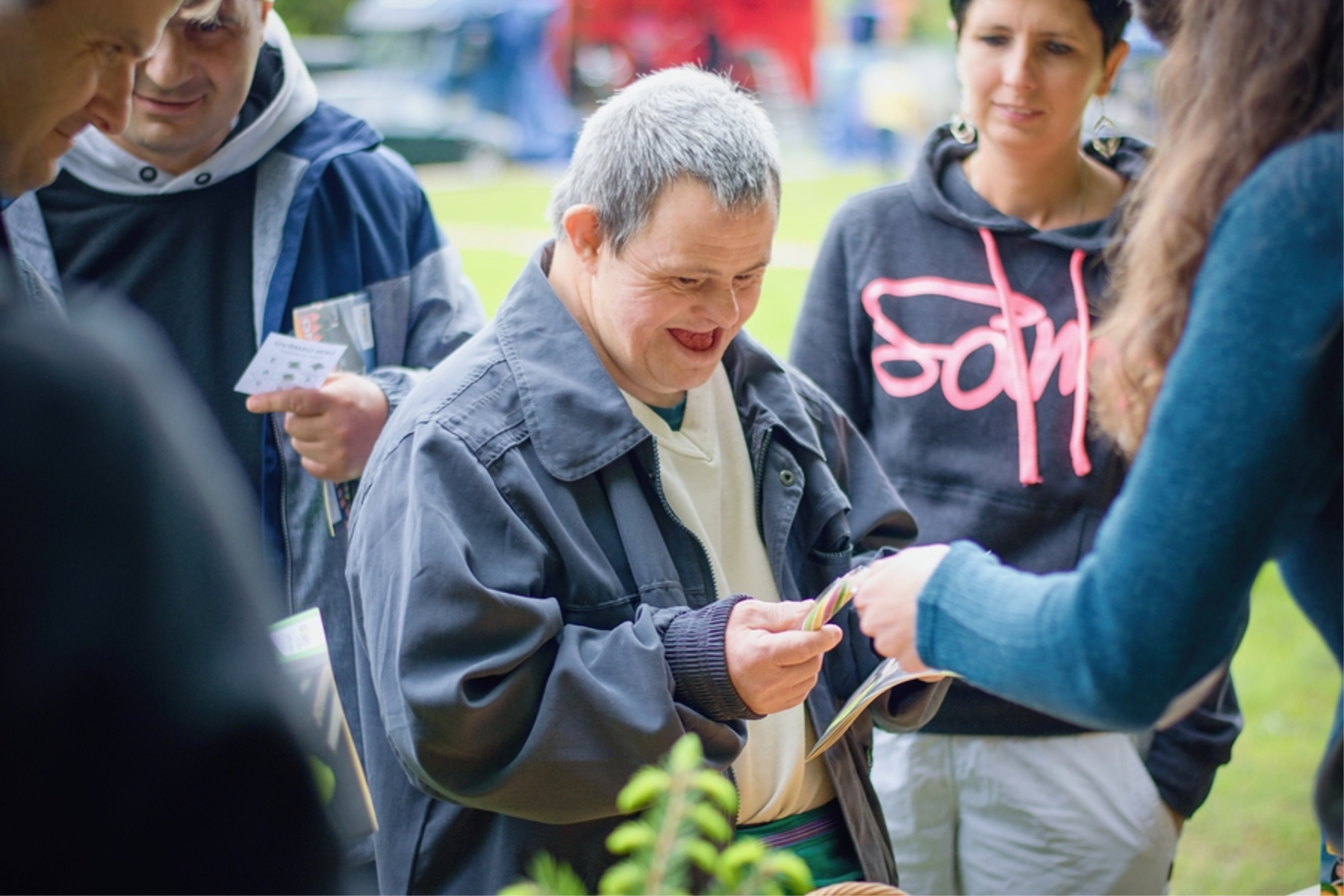Greta had been taking care of her brother Bill since their mother died three years ago.
Bill has Down Syndrome. Though there were many things he could do independently, he needed someone to look after him. Greta knew he would be her responsibility when her parents were gone, but she loved Bill, so the idea never bothered her. But, lately, Bill’s behavior had changed. He sometimes couldn’t remember what day it was even though he was a man who loved routine. There were times when he seemed confused and had trouble understanding Greta’s instructions. When Greta mentioned the changes to Bill’s doctor, she was surprised to learn that Bill had signs of Alzheimer’s disease, a condition people with Down Syndrome are at much greater risk for.
How Down Syndrome and Alzheimer’s Disease are Linked
There is an important genetic link that makes people with Down Syndrome more likely to get Alzheimer’s disease. Down Syndrome occurs in people who have two chromosome 21s instead of the usual one. This chromosome is also the one that carries a gene called the APP gene. APP stands for amyloid precursor protein. This is the protein that, when there is too much, collect together to form beta-amyloid plaques. Beta-amyloid plaques are considered the “hallmark” of Alzheimer’s disease.
Recognizing Alzheimer’s Disease in Someone with Down Syndrome
The most noticeable symptoms of Alzheimer’s disease in people with Down Syndrome often have more to do with behavior and functionality than they do memory. Some early symptoms you may see are:
- Less ability to pay attention.
- Not as sociable as before and not talking and expressing themselves as much.
- Not as interested in doing regular activities.
- Feeling sad, anxious, or fearful.
- Being irritable, uncooperative, or aggressive.
- Trouble sleeping.
- Seizures that start during adulthood.
- Changes in their ability to walk and in coordination.
- Being noisier and more excitable than usual.
Because people with Down Syndrome are unlikely to tell anyone about changes in memory, it often falls on caregivers and the people closest to them to notice changes in the way they act. That can make diagnosing Alzheimer’s disease more difficult. If you notice changes like those listed above in your loved one with Down Syndrome, talk to their doctor.
Senior care can help your older family member with Down Syndrome whether or not they have Alzheimer’s disease. A senior care provider can assist them with daily activities like getting dressed, grooming, and preparing meals. A senior care provider can also engage them in meaningful activities that keep them from getting bored and give them a sense of purpose.
If you or an aging loved-one are considering hiring Elderly Care in Valley, AL, please contact the caring staff at Prime Home Health today. Caring for Our Friends and Neighbors in Tallapoosa, Chambers, Lee, Macon and Russell Counties! Call us 24 hours a day, 7 days a week! 334.745.7966
Sources
Ndss.org
Nia.nih.gov
Alz.org






